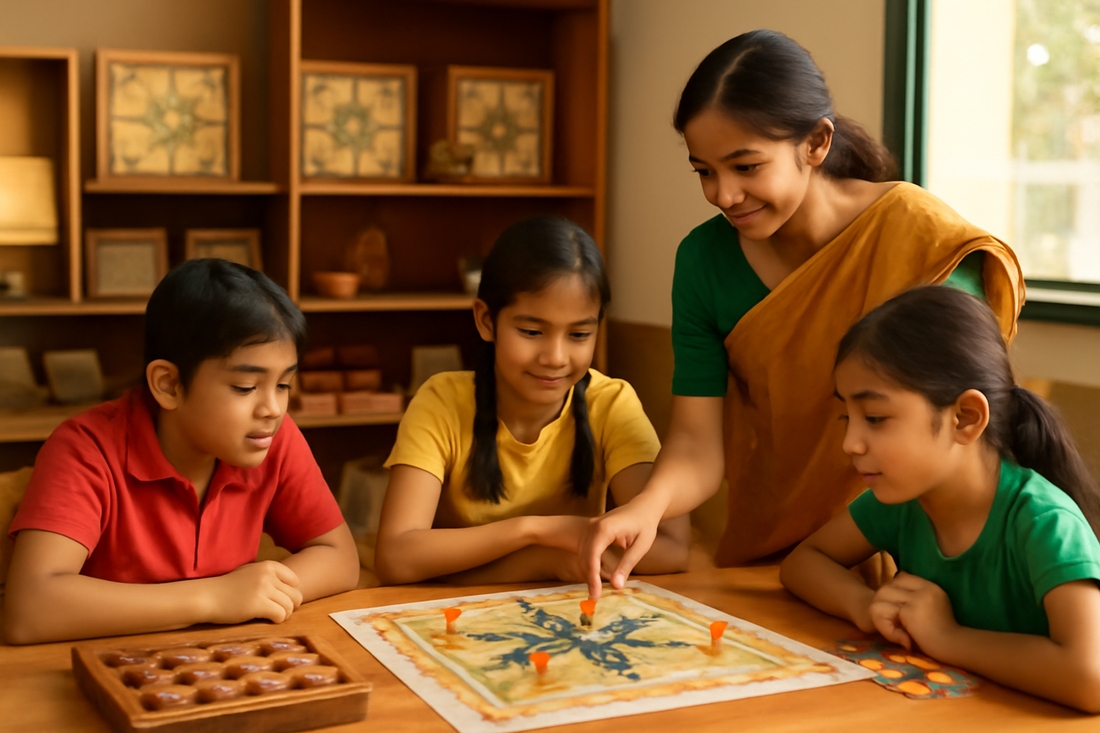
Why Indian Games Should Be in Every Classroom
Share
Check Out All The Indian Traditional Board Games Here
Introduction
Indian traditional board games are far more than just a source of amusement—they are powerful, culturally-rooted tools for engaging students and enhancing classroom learning. Integrating these classic games into educational settings can improve attention spans, promote teamwork, and foster a tangible connection to math, history, and problem-solving skills.
Benefits of Using Indian Board Games in Education
- Interactive Learning: Games like Chowka Bara and Pallanguzhi make abstract concepts—such as counting, strategy, and critical thinking—interactive and memorable.
- Cultural Awareness: Students gain appreciation for India’s rich heritage and diversity through exposure to games from different regions.
- Social Skills: Turn-taking, cooperation, communication, and respectful competition are all encouraged in a non-digital environment.
- Hands-on Engagement: Physical manipulation of game pieces develops motor skills and provides relief from screen-based learning.
- Accessible for All Ages: Games are easily adapted for various grade levels, ensuring inclusivity.
Top Indian Board Games for the Classroom
| Game | Educational Value | Ideal Age Group |
|---|---|---|
| Pallanguzhi | Counting, strategy, math, memory | Primary & Middle School |
| Chowka Bara | Probability, logic, teamwork | Middle & High School |
| Chausar | Planning, patience, game theory | Upper Primary & Higher |
| Snakes & Ladders | Morals, chance, handling setbacks | All Ages |
| Aadu Huli Aatam | Problem solving, creative thinking | Primary & Middle School |
Teacher Tips for Integrating Board Games
- Tie to the Curriculum: Use Pallanguzhi to reinforce basic math. Link Chowka Bara to topics in probability or teamwork.
- Rotational Activities: Set up game stations as part of weekly activity periods to offer students variety and choice.
- Class Projects: Have students research, design, or create their own versions of classic games to deepen learning.
- Assessment: Use gameplay to observe practical problem-solving and social interaction in real-time.
